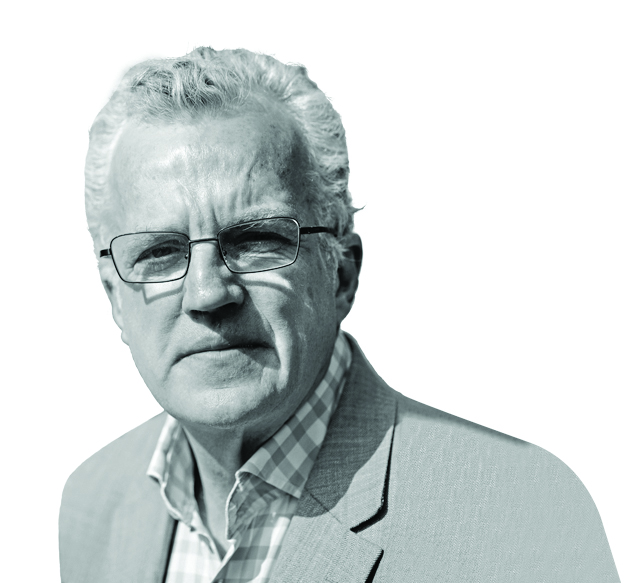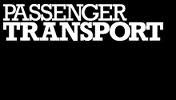This was not a good budget for transport.
There were some positive aspects, such as the confirmation of some long-announced railway schemes, and there was £100 million for active travel.
This was not a good budget for transport.
There were some positive aspects, such as the confirmation of some long-announced railway schemes, and there was £100 million for active travel.
And while the motoring lobby may feel they have chalked up a victory by stopping the fuel duty rise (or rather preventing the Conservative cut in fuel duty from being scrapped), even they have lost a number of key road schemes - for which, frankly, good riddance.
None of this could do anything more than cover up the fact that the whole approach was deeply disappointing.
Many railway projects remain in limbo - as pointed out by Railway Industry Association Chief Executive Darren Caplan, given that it is five years since we were promised a schedule for rail enhancement projects, and it has still not been forthcoming.
So, unexciting and certainly not groundbreaking. But it’s the lack of a coherent thread through the various policies that is so disappointing. It really seems that it is policy by numbers, without any clear political rationale behind it.
The £100m for cycling and walking is far less than expected, and none of the announcements give the impression that they are underpinned by a well-thought-out policy.
This was well illustrated when Budget week began with a clearly deliberate leak about bus fares.
There was informed speculation that the £2 maximum fare cap, imposed to help the industry recover after the pandemic, would be abolished.
In the event, this was a typical political tactic of leaking out the worst case scenario only to then turn it around by announcing that is bad, but not quite as bad. A very familiar and dishonest ploy, as it turned out that the cap would be raised to £3 in the New Year. Moreover, there was no long-term commitment to create a permanent cap.
This was followed by the speech itself which, as my friend the political commentator Steve Richards said to me afterwards, was “poor for transport”.
Chancellor Rachel Reeves first reiterated a series of schemes that are already under way, such as East West Rail and the Transpennine Route Upgrade, emphasising electrification of the line between York and Church Fenton (population 1,392), which clearly must have sent the political journalists covering the speech to consult their handy rail atlases.
This (they would have discovered) refers to all of 11 miles of electrification - hardly worth mentioning in a speech which was all about filling black holes of tens of billions of pounds.
Rattling things off rather like W H Auden in the Night Mail, but without the rhyming cadence, Reeves then mentioned “upgrades at Bradford Forster Square, improving capacity at Manchester Victoria, and electrifying the Wigan-Bolton line”. So, it’s all happening up north, according to the MP for Leeds West.
She added that her Right Honourable Friend Louise Haigh, the Transport Secretary, “has also set out a plan for how to get a grip of HS2”, although unfortunately, we have so far not been blessed with being able to see it.
However, in what was the most important part of the speech for the railways, she confirmed that the tunnelling between Old Oak Common and Euston would be going ahead.
This has long been rumoured and was not really a surprise, since retaining the scheme as the Acton to Aston shuttle was never viable. Indeed, I claim some credit for this, as the slightly inaccurate Acton to Aston moniker which I devised for the scheme was proving embarrassing.
But again, there were no details of how Euston station itself will be funded, although it is clear that the Conservatives’ attempts to get private funding for the whole scheme were always going to fail.
My informed sources suggest that (initially, at least) the Euston terminus might just be a shed with corrugated iron for cover (I jest slightly) covering the six platforms.
Perhaps the model is Canberra Kingston station, which is little more than a shed miles outside the centre of town.
How much the tunnelling will cost, or when it will be finished, was not revealed. Given that HS2’s financial situation is as opaque as the London smogs of my childhood, who knows what the final bill will be for the Euston to Aston (or rather Handsacre Junction) line, which so far is the only section that is certain to be built, given there was no news on the Birmingham-Manchester section. In other words, we were given titbits about tiny sections of electrification, but nothing on the key section of HS2.
After the mention of HS2, Reeves turned her attention to potholes, and therefore omitted to mention various transport matters which are in the famous Red Book that fills out the details of Budget speeches.
It is there that we discover that regulated train fares are to go up by 4.6% in the New Year. Not quite the 50% increase in the bus cap, but disappointing nevertheless for a government intent on promoting sustainability and reaching net zero, especially given the fuel tax paralysis.
Has anyone (for example) calculated the elasticity of these increases - in other words, the relationship between how much income the rise will bring in compared with the loss of patronage as a result of higher fares?
The railway is now a very different beast than before COVID, with much more discretionary use that is far more price-sensitive than the captive usage by season ticket holders. And as for tacking on £5 to railcards to bring in paltry amount of revenue - just unspeakable.
Summing up, the budget has (yet again) skewed the price signals in favour of motorists and against sustainable transport modes.
We have yet to hear Labour’s transport minister clearly setting out why financial support for public transport is not a subsidy or a welfare benefit to the feckless poor, but rather the means by which the economy and the wellbeing of the population are improved.
Louise Haigh, to her credit, has spoken of the links between transport and health. And she has, apparently, understood that people cycling, walking and using public transport are likely to be healthier than car drivers and therefore represent a boost to the NHS. This budget, though, reflects none of that thinking.
As a long-time supporter of Labour, and indeed a former Parliamentary candidate, this scatterbrain approach to transport in general and to railways in particular makes me wonder what this government is for.
If it is not using its power to achieve the bigger aims of reducing inequality and moving towards net zero, then what is it trying to achieve?
Given the various crises the world faces, from climate change to conflict, the timid approach to transport policy does not bode well for any wider ambitions that Sir Keir Starmer has promised.
A coherent transport policy requires courage and a clear sense of direction. Unfortunately, both seem to have gone missing.
Login to continue reading
Or register with RAIL to keep up-to-date with the latest news, insight and opinion.
















Login to comment
Comments
No comments have been made yet.